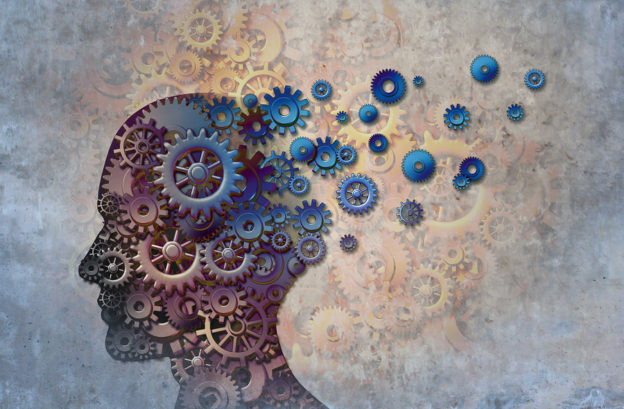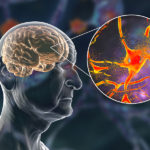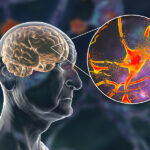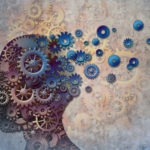By David Blyweiss, M.D., Advanced Natural Wellness
November 21, 2018
The National Institute of Aging says: “Increasing age is the most important known risk factor for Alzheimer’s.”
Well, that’s just a bunch of baloney.
Alzheimer’s disease is NOT a natural result of aging. Even worse, most of today’s beliefs about the disease are flat-out wrong.
I’ve been saying this for decades. But only in recent years are other experts finally getting on board with the concept that Alzheimer’s is largely preventable. That it’s often reversible. And that current areas of research have been misguided, at best.
So before we even get started, let’s throw the amyloid hypothesis out the window. This is the theory that the production of amyloid deposits in the brain is the driving force behind Alzheimer’s.
Today we know better.
Rather than being destructive, it turns out that beta-amyloid is a protective measure against infection and inflammation. (When drugs are used to reduce these plaques, progression of the disease actually becomes worse, not better.)
MD Exposes the Hidden Danger to Your Eyes

When your eyesight starts to fail, it's a real problem. Suddenly you can't go to the grocery store... you can't get to the doctor if you have an emergency... you can't meet your friends for dinner…
Your "regular" doctor doesn't have time to keep up with the latest research. And the same goes for eye doctors. They go to school to learn how to fit you for glasses and contacts, but have no way of preventing the damage and loss of eyesight that threatens your freedom and independence.
Let me show you something that explains a LOT about how your eyes work.
In my FREE Special Report, I'll show you a HUGE, untapped resource for your eyes that safely and naturally restores clear, effortless eyesight.
Click here to get started...
But that doesn’t mean Alzheimer’s disease isn’t reversible. In fact I have proof beyond a shadow of a doubt that it is.
The Evidence is in: Alzheimer’s disease is Reversible.
Take the case of a 69-year-old business man diagnosed with Alzheimer’s disease. His disease was progressing so quickly that doctors told him to get his affairs in order. At the time, his business was in the process of shutting down since he couldn’t really work anymore.
But when he started on a personalized therapeutic program to treat the disease, all of that changed.
In the first six months he was able to recognize people again, remember his daily schedule and function at work without difficulty. His life-long ability to quickly add numbers in his head returned. And before long, he was able to continue growing his business.
This is only one success story. There are many others.
It’s all thanks to a program designed by Dr. Dale Bredesen. He calls it the ReCode protocol (Reversal of Cognitive Decline). Basically, it’s a personalized lifestyle intervention therapy.
Not long ago he placed 10 patients into this program. At the time, all of them met the criteria for Alzheimer’s disease or cognitive impairment.
And by the time they completed the protocol, the results were astounding.
Not a single one of them met the Alzheimer’s criteria after the treatment! In fact, most of them returned to the normal range of cognitive testing.
Are You Suffering From...
- Love handles and a pot belly
- Romance that isn't what it used to
- Forgetfulness and inattention
- Low (or no) strength and endurance
- A sex drive that's shifted into neutral...or worse
If so...you may have Mature Male Burnout. Click here to discover more about this unique condition and what you can do about it.
But their success was not the result of medications, psychotherapy or other accepted forms of treatment.
Instead, the “cure” was in the timing of their meals and the foods they ate. It was in their sleeping schedules and exercise activities. And it was helped along with personalized combinations of supplements to support their individual needs.
How amazing is that?
5 Easy Ways to Save Your Brain
When I meet patients with memory decline, the first thing I do is give them a full evaluation. Then, like Dr. Bredesen, I develop a personal protocol to treat them.
And while each one may require a somewhat different approach when it comes to nutritional deficiencies, use of medications and other factors, there are some parts of the treatment that apply to every single one of them.
Slow down brain shrinkage with plenty of physical activity. A good workout reduces brain shrinkage and increases something called BDNF, brain derived neurotrophic factor. This protein encourages the growth of new neurons and improves their function. BDNF also enhances activities that help the brain make the right connections more easily and readily.
You can easily ramp up your activity levels by performing high intensity interval training (HIIT) exercises daily. This type of exercise involves short bursts of activity followed by brief reset periods.
Eat a low glycemic, low inflammatory and low grain diet. I prefer a modified Mediterranean style diet that includes plenty of fresh, organic fruits, vegetables, extra virgin olive oil, nuts and wild-caught fish. Meat, grains and dairy should be limited.
This way of eating isn’t simply anti-inflammatory. It also boosts brain volume and cuts your chances of cognitive decline and dementia.
Take part in daily intermittent fasting. Eat all of your meals within an eight hour time window each day. Then, fast for the other 16 hours. This will trigger a process called autophagy, which rids your cells of waste and helps them work more efficiently.
Address your stress. It’s also important to take control of your stress levels, since chronic stress is linked to a decrease in hippocampal mass and a decline in mental function. So don’t forget to make time for yourself to get a massage, read a good book or just sit back and listen to your favorite music. Yoga, meditation and mindful breathing exercises are also proven ways to cut your stress levels.
SOURCES:
Bredesen DE, et al. Reversal of cognitive decline in Alzheimer’s disease. Aging. Published online Jun 2016.
Bredesen DE. Reversal of cognitive decline: a novel therapeutic program. Aging. 2014 Sep;6(9):707-17.
Tan ZS, et al. Physical Activity, Brain Volume, and Dementia Risk: The Framingham Study. J Gerontol A Biol Sci Med Sci. 2017 Jun 1;72(6):789-795.
Erickson KI, et al. Exercise training increases size of hippocampus and improves memory. Proc Natl Acad Sci U S A. 2011 Feb 15;108(7):3017-22.
Luciano M, et al. Mediterranean-type diet and brain structural change from 73 to 76 years in a Scottish cohort. Neurology. 2017 Jan 31; 88(5): 449–455.
Solfrizzi V, et al. Mediterranean diet in predementia and dementia syndromes. Curr Alzheimer Res. 2011 Aug;8(5):520-42.
Wilson RS, et al. Chronic distress and incidence of mild cognitive impairment. Neurology. 2007 Jun 12;68(24):2085-92.








All of this makes more sense than anything I have.learned so far. The